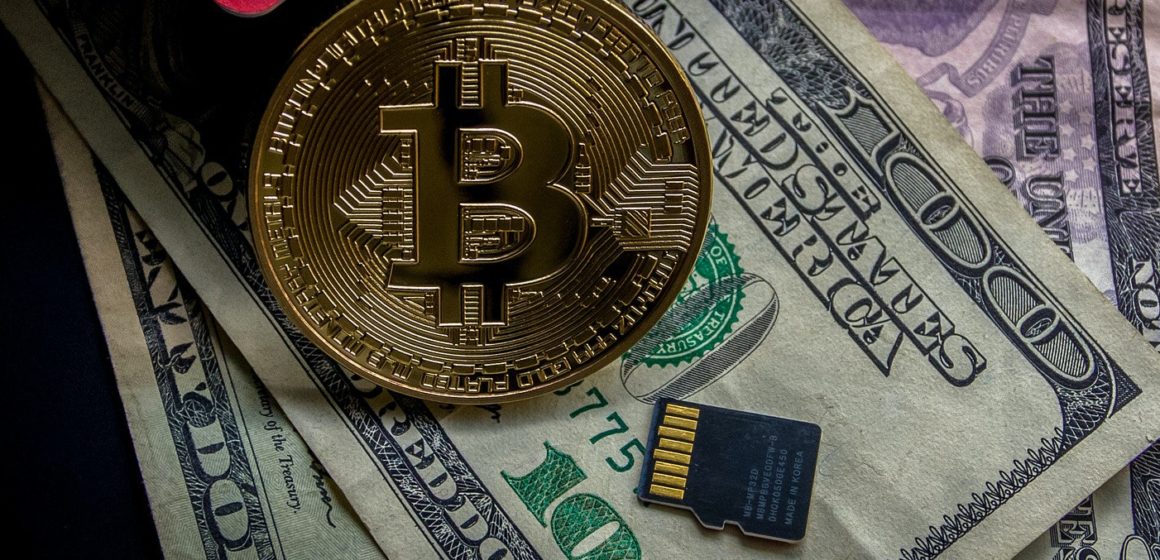The fast growth of cryptocurrencies this past decade have experts and investors branding it as ‘the future of money.’ Many people believe that digital currencies have the potential to reform the current financial system and lead humanity towards the next step in the evolution of money.
This innovation in Fintech has sent ripples throughout the market and industries since its appearance in 2009. The crypto’s rise in popularity only signifies shifting into a more digitized market. In the near future, it is not at all impossible for crypto to become the default tool used in fiscal exchanges. However, its presence does pave the road for banks and other financial bodies to be rendered obsolete.
The industry that was disrupted the most with the insurgence of cryptocurrencies is the finance industry. Traditional banks steadily begin to feel the effects of these digital transactions now that value can be exchanged outside the influence of financial bodies by merely accessing the internet. As more and more online businesses accept crypto as payment, the more relevant and valid these internet-based currencies become.
Although blockchain technology and crypto are still in its infancy stage, consumers and banking giants around the globe are starting to recognize its potential and the impact it can have on the current industry and economy.
Crypto vs. Traditional Money
One of the main causes of crypto’s creation is to change and undermine the traditional way of trading money and services. Therefore based on its goals, crypto and fiat currencies naturally resist one another.
Fiat currency (euros, pounds, dollars, etc.) and crypto (Bitcoin, Ethereum, TRX, etc.) are both mediums that can be used to purchase goods and services. As currencies, both store and transfer value which is controlled by economic factors such as demand, supply, scarcity and the like.
The main difference between these two currencies is their organizational structure. Unlike fiat currencies that operate in traditional banking systems and regulated by the state, crypto is a decentralized and digital currency. It is not governed by banks or backed by a central organization. Therefore, it is exempt from the intervention of the state and other financial bodies.
Instead of an entity holding onto your money, coins are held in the ‘cloud’ via blockchain technology. With this tech, you can access your money and make transactions whenever and wherever you may be.
Why Are Banks Important?

It took decades for the current banking system to become as stable as it is now. Despite its faults, this system that took decades of alterations and enhancements has yet to meet its match. While crypto holds a lot of promise for the future, technology has yet to fully develop a system that can take all the roles that traditional banks and institutions play in our current society.
Financial institutions are so integrated into the economy because they do the following functions:
- Store resources and documents – Banks reduce the risk of important assets being stolen by providing means of securing it. You won’t need to worry about your hard-earned cash being swindled by burglars or robbers if you keep it in the bank.
- Manages records and transaction details – They record every debit and credit transaction through secured networks. It allows you to keep track of all your income, savings and expenses.
- Financing, Mortgage, and Credit – This is one of the bank’s most utilized features. The bank can provide you with financing and credit facilities in times of emergency.
How is Crypto different from Banks?

Crypto might be a hard concept to wrap your head around, especially if you’re going to compare it side by side to centralized systems. After all, it is the first time humanity has encountered this kind of digital currency and so its adoption to the economy would incite a lot of questions and doubts.
The most common question that people ask first is: where does the value of crypto come from if it’s not regulated by a governing body?
The answer to this question lies in the community that utilizes said currency. Paper cash and coins would hold no material value without a community, country or organization that uses it as a medium of exchange. When a wider community backs the value of a currency and agrees to use it as money, only then does it gain value.
1. Decentralized vs Centralized
Like what was mentioned before, the main difference of crypto from traditional banking systems is that it is a digital decentralized currency.
To hold value in the traditional financial system that most people are familiar with, any asset would need three distinct bodies: the owner, the market and the regulator. The owner stores the assets and the market depicts anyone who is interested and has the ability to buy the assets. The regulator acts as the third party that bridges the trade between the former two entities. They ensure that the transaction falls within the rules and costs.
With crypto’s decentralized organizational structure, there is no longer a need for a middleman to conduct money exchanges. It is controlled by code and relies on independent peer-to-peer money networks.
The program encrypted in blockchain technology already makes it so that the market is self-regulated. It levels the playing field so that crypto services are available to everyone without one being more or less important than others.
Transactions made in crypto are stored on a public ledger. Cryptographic techniques are encoded to ensure that the records are precise and true.
On the other hand, fiat currencies are controlled by centralized bodies like banks and governments. These organizations have the authority to regulate all activities surrounding your money. They may approve or disapprove of any transactions, deny the transfer of money to certain people or groups, or keep your wealth under surveillance.
2. Transaction Cost & Exchange Efficiency
When making bank transactions or money transfers, traditional banks usually charge 1% to 5% or more for transaction costs. If you’re transferring a huge amount of cash, even just 5% is already a hefty amount. Almost all bank services come with an equivalent cost. So it’s no surprise that bank fees can reach up to thousands of euros every year just from the maintenance fees, ATM charges, and transfer fees.
Bank transfers also take anywhere from a few hours to five business days, depending on your location and where you’re sending your money to. Not to mention that because banks are centralized, they can withhold your money from you or deny transfers.
During holidays and weekends, most banks are usually unavailable, limiting your options and convenience. This is all without mentioning the long waiting lines and VIP customers when you physically go to the bank.
In crypto, financial transactions are executed almost instantly and with minimal cost. By eliminating the third party and other fees, the cost of transaction in cryptocurrencies is low and inexpensive that you’d hardly feel it chipping at your hard-earned money. With crypto, it’s possible to move thousands or millions of euros and only pay €5-10 as a transaction cost.
Crypto users have the convenience of handling daily money exchanges like payments themselves without the need to undergo bank processes and incur bank fees. Its peer-to-peer money system functions regardless of the place, time or occasion. It is also equally available to everyone, without one user more important than others.
3. Bureaucracy & Red Tape
Traditional banks also put limitations on their financial services. For example, there’s a limit on the amount of money you can withdraw, transfer and deposit in a single transaction or at any point in time. Due to its centralized nature, banks are mandated by the law to report any single exchange exceeding a certain amount to authorities.
To withdraw huge amounts of money, the process is lengthy and tiresome. Sometimes, it can even involve lawyers which means it is also expensive. These certain limitations when it comes to one’s own wealth is the reason why some people are all for the adoption of crypto.
With crypto, your money is your own and in your control. There won’t be bank managers talking you out of withdrawing huge amounts of cash, or authorities checking your bank account. In the absence of a third party, you can withdraw, deposit or transfer as much cash as you want at any time, to anyone you want without getting the law enforcement involved.
4. Security of Funds
With the advances in technology in the past decade, banks have become more vulnerable to security breaches and compliance issues. Other than that, fiat currencies also seem to decrease in value each year.
With crypto, the state and other fiscal bodies cannot devalue your money. As long as your wallet details are safe and secure, the chances of your account getting hacked are low to none. Just make sure that you’re not getting scammed and always keep your computer safe. Take extra precautions by installing an antivirus software and extensions that’ll help you identify phishing sites and the like.
The Future of Banks and Crypto

Crypto has the potential to become the next big thing. It can possibly transform the world of finance and many other industries in the near future. Many experts claim that the invention of crypto should be considered as significant as the steam engine that powered the industrial revolution.
For the banking giants keeping an eye out for the latest Fintech innovation, they’ve already identified crypto as an industry threat. With its rapid growth, it can potentially leave banks and other financial bodies in its wake.
With crypto, people no longer have to physically go to the bank with coins and money in their wallets just to access their wealth. Consumer preferences are shifting to the digital market. On top of that, peer-to-peer networks are becoming more common. People who are denied and turned away by bank requirements now have other alternatives for financing at their disposal.
The demand for instant, mobile and digital services is increasing and financial bodies must adapt to that demand. Traditional banks are now creating digital solutions and real-time services to remain relevant in today’s fast-paced economy.
Currently, the value of cryptocurrencies has reached a new high. Every day new innovations aimed to make crypto more adaptable are popping up from all over the globe. ATMs for bitcoin have now surfaced making it easier for crypto users to convert regular currency into crypto.
Banking products such as insurance, loans, mortgages and credit facilities that were previously untapped by crypto are now being introduced in other cryptocurrencies.
Recently, Bitcoin has introduced its new dimension of programmability. This feature will allow Bitcoin transactions to include programs or contracts after certain conditions are met. This opens up the door for Bitcoin to start building more fiscal solutions, such as insurance contracts, management systems, and the like.
Different industries are also adapting to the decentralized process of crypto. By making their operations more decentralized, they are opening their doors to digital currencies.
The shift of traditional banks to digital is inevitable especially with the competition that crypto presents. Wherever the people go, the industries must follow.
Currently, crypto has yet to reach the stage where it can overtake all the functions of banks. It will take some more time before crypto reaches its fullest potential. Although even at its infancy, crypto has already influenced and urged many industries to migrate to the digital world. For other businesses to keep up, they too must become more transparent, faster, cheaper and more convenient.
When crypto has finally accessed the real economy, its adoption will simultaneously gain more traction. The world is possibly already at the brink of the next greatest and most dramatic transformation in the history of human society. The domination of crypto will open the doors to globalization that is truly accessible to everyone.
Support Zerocrypted
- Trade on Bitmex
- Trade on Binance Jersey
Subscribe to our Newsletter to be a part of our future $1,000 per month contests.


